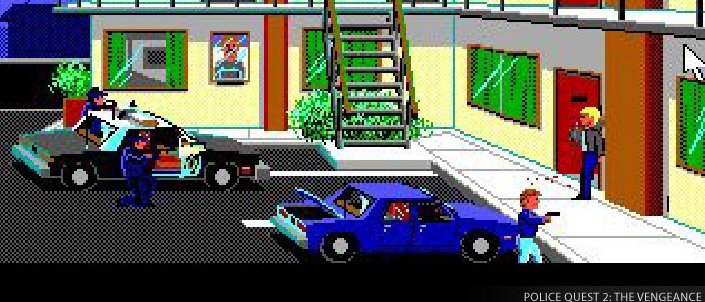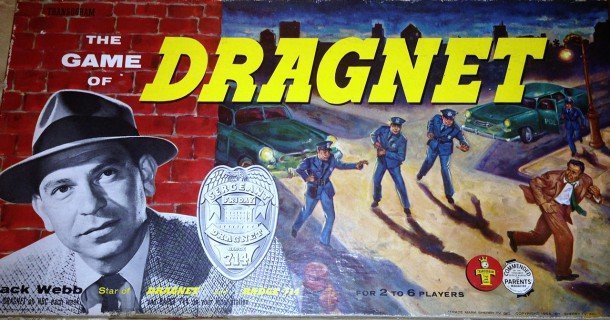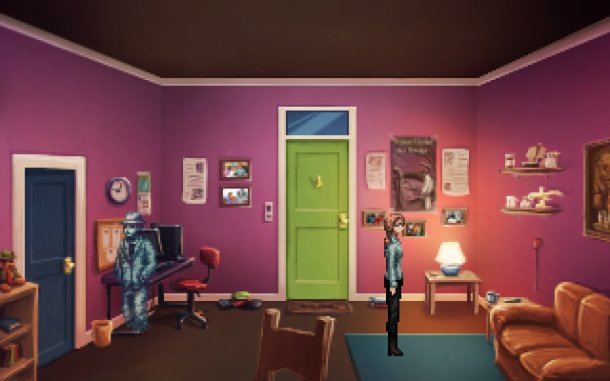Procedural quest: Why there are so few police procedurals in gaming

Flip through the channels on cable TV for more than a minute, and there's a good chance the weathered face of Detective Lennie Briscoe or the salt-and-pepper shag of Jack McCoy will fill your screen. Law & Order reruns will be around forever; the original series ran for 456 episodes over 20 years. Throw in spin-offs and there are more than 1000 episodes. CSI and NCIS have run for hundreds of episodes. The popularity of procedural shows never wanes: day-in, day-out, the formula never changes, but we keep watching. Procedurals like Law & Order and CSI are the reliable backbone of entertainment: sturdy, consistent, always there to give you what you need without doing anything too new or exciting. We love procedurals. So why, if the genre is so enormously, enduringly popular, on TV and in books and even movies, are there so few police procedural video games?
Predictable-but-entertaining detective stories and courtroom dramas have dominated primetime for 60 years, but you can count the successful, well-known procedural games on a couple hands with fingers to spare. When HBO's True Detective did something bold and new with the formula, it became the most talked-about TV show in years. It also made me realize that police procedural games are practically nonexistent. I couldn't figure out why, so I decided to talk to game writers and designers, from the creator of Police Quest to the writer behind Spec Ops: The Line , to answer that question.
What is a procedural, anyway?
If you've ever seen a single episode of Law & Order or CSI, you probably "get" what a procedural is. But actually defining the genre is a little trickier. When is something just a detective mystery, like Sherlock Holmes or a film noir? Does a procedural have to be realistic?
"Realism is the most important element in my opinion, along with a compelling story and strong character depiction," Jim Walls, who created point-and-click police adventure Police Quest at Sierra in 1987, wrote over email. "Before the days of Police Quest, if a person had any curiosity or interest in police work they would have to read a book, go to a movie, watch Cagney & Lacey or join the force. Police Quest was the first game of its kind giving the player a 'hands on' experience into the world of police work."

Police Quest is probably the first true police procedural game, because it focuses on the process, the procedure, of cracking cases, doing detective work and routine traffic stops and filing paperwork. Walt Williams, writer of Spec Ops: The Line, explained to me how those procedural elements distinguish shows like Law & Order from detective stories.
"For me, procedurals [are about] that act of gathering the necessary information that you need in order to figure out who has committed a crime, and then gathering the rest of the information in order to make that stick in a court of law, to ultimately find that person guilty of committing the crime. Whether that's figuring out motive, or just finding red-handed evidence," said Williams. “When you think about a mystery, that's entirely about the mystery of how the crime was committed and figuring out who [did it]. Those tend to end with the revelation of who committed the crime."
Procedurals splintered off from the mystery genre in the 1940s, when novels and films began to focus on the nuts and bolts of police work. Then came Dragnet , first on the radio, and then on TV. The case-of-the-week structure following Sergeant Joe Friday, and Dragnet's realistic depiction of everything from crime scene investigation to boring paperwork, still serves as a template for procedurals today. That's about 60 years of successful procedurals on TV—so what is it about the genre that so rarely translates into gaming?
Keep up to date with the most important stories and the best deals, as picked by the PC Gamer team.

Why police procedural games are so rare
"In regards to the procedural of the job, something like police officers or Doctor House, I think it comes down to how the fantasy of having that job is so easily broken by a video game," said Williams. "Let's say you're playing as a detective. L.A. Noire is a perfect example of this. When you're playing any kind of game, you're stepping into the fantasy of being a type of character. A lot of that fantasy tends to get ruined once you can see behind the curtains of the design, and once your brain figures out how you can game the design. With L.A. Noire, you could just go around and click on things until your character had the programmed response that he needed to have to let you know that you had found something. That's what kills the procedural."
David Gilbert, who wrote and designed the Blackwell series of point-and-click adventure games, made a similar point.
"A lot of what happens in detective shows is that they put together information and clues, and that's very hard to translate adequately to the player," he said. "How do you as a player solve a mystery without it just being solved for you? It's wrong to ask the player to make these deductions themselves. They're probably not going to. There's a reason why I'm not a detective myself. I'm not able to make those deductions. So how do you make the player feel like a detective solving a mystery when they're not actually solving the mystery? It's hard to make it satisfying. It can be done, but I've noticed that most of the mystery games tend to fall on the hidden object side of things, where you solve the mystery by solving a minigame or a hidden object quest."
How do you design a game for someone to play—giving them the tool necessary to perform detective work—without exposing an underlying system that they can manipulate? That's a huge challenge: make the game too opaque, and only a slim percentage of players will have the deductive skills to crack the case.

Video games also give us different expectations than TV shows. Detective Briscoe carries a gun on Law & Order, but we don't expect him to break into a bullet-time shootout in every episode. Give us a gun in a video game, and we expect to be able to shoot it. Police Quest is the rare exception: fire your gun in Police Quest, and you're probably looking at a game over.
Procedural games have a series of obstacles to overcome: designing a system that can't be gamed by the player, overcoming the expectations of the game medium, and, ultimately, making the procedure of police work fun to play. Most games encourage you to fire a gun instead of issuing you a citation for removing it from its holster. That's what we expect from shooters. But there's an audience for everything. If some gamers want to spend hundreds of hours immersed in Euro Truck Simulator , others would like to spend just as much time in the shoes of a beat cop, even if that means doing a lot of paperwork.

Wes has been covering games and hardware for more than 10 years, first at tech sites like The Wirecutter and Tested before joining the PC Gamer team in 2014. Wes plays a little bit of everything, but he'll always jump at the chance to cover emulation and Japanese games.
When he's not obsessively optimizing and re-optimizing a tangle of conveyor belts in Satisfactory (it's really becoming a problem), he's probably playing a 20-year-old Final Fantasy or some opaque ASCII roguelike. With a focus on writing and editing features, he seeks out personal stories and in-depth histories from the corners of PC gaming and its niche communities. 50% pizza by volume (deep dish, to be specific).

